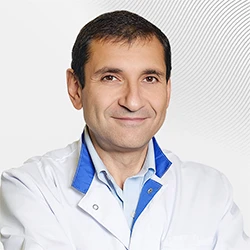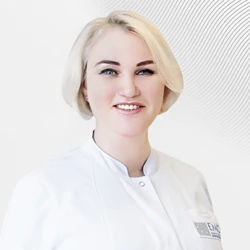Irritable bowel syndrome
Irritable bowel syndrome (IBS) is a functional disorder that is accompanied by chronic abdominal pain, discomfort, bloating, and intestinal disorders. At the same time, there are no organic reasons for these violations.
Symptoms
IBS is found in people of different ages, genders, races, lifestyles, and places of residence. Patients are mainly concerned about unpleasant sensations (discomfort) and abdominal pain, alternating constipation and diarrhea. A thorough examination does not reveal any organic pathology, but despite the recommended treatment with drugs of different classes, the patient is still concerned about intestinal disorders. A typical symptom is an intense urge to go to the toilet shortly after eating, as well as relief of symptoms after going to the toilet.
According to the latest data, the symptoms may relate to both disorders in the small intestine and to undiagnosed infectious and immune pathologies.
Reasons
According to recent but outdated ideas, any IBS was based on psychosomatics – a violation of the regulation of the central and autonomic nervous systems and the associated disruption of the gastrointestinal tract. It was believed that under the influence of stress, psychoemotional stress, inadequate production of chemicals occurs that regulate the motor and evacuation function of the intestine. In addition, the sensitivity threshold of the receptors changes, and a person feels severe abdominal pain, for example, with excessive gas formation, although in a normal, healthy state he most likely would not have felt it. These causes can indeed cause IBS, but there are others.
The concept of 20th century medicine was to find one factor, one cause, and one mechanism to give one treatment, one pill - the so-called "golden bullet" concept, or the theory of a single pathogen. Today it has become clear that this does not work for most diseases, especially chronic ones.
According to today's ideas, psychosomatics itself does not account for many cases of IBS. Another thing is important: almost any chronic disease of the digestive tract causes an emotional disorder. There are anatomical prerequisites for this, related to the location and operation of the vagus nerve, and functional ones, related to the fact that the emotion center and the control center of the gastrointestinal tract function in close connection.
Today we are witnessing the formation of the concept of multifactorial diseases. In a multidimensional coordinate system along different axes, we put aside environmental factors, nutritional factors, infectious factors, genetic factors, constitutional and emotional characteristics, and, like a wind rose, we form a patient profile that allows us to determine which factors are the main and which are secondary to the patient. This is the essence of an individual approach and individualized medicine. That's what's important when working with patients with IBS.
Diagnostics
Until now, the diagnostic criteria for IBS state that the diagnosis of IBS can be made if no structural pathology is detected during colonoscopy (examination of the large intestine) and if there is no infection. It's time to add a few positions to this.
-
Enzymes of the small intestine and their deficiency. Enzymes are located on the wall of the small intestine and break down small carbohydrates into molecules that can be absorbed by the small intestine. If the epithelium of the small intestine does not work well, then undigested foods "fall" into the large intestine, and there they begin to ferment under the influence of the usual microflora, thereby causing symptoms of IBS.
-
Immune diseases of the small intestine that are not visible on colonoscopy, namely microscopic colitis, which can only be diagnosed by biopsy.
What does it look like in real life? The patient complains of chronic diarrhea. Diagnosis of intestinal infections, especially their protracted and chronic course, is not always carried out properly. In addition, it is difficult to suspect microscopic colitis based on clinical characteristics. And if a patient with a preliminary diagnosis of IBS is referred for a colonoscopy, then if a pathology of the small intestine is suspected, it is necessary to prescribe a biopsy of the intestine for a whole group of diseases. However, to date, routine multiple biopsy has not been included in the standard colonoscopy protocol in any country.
With the help of a biopsy, you can evaluate everything that looks good "on the eye", but microscopically looks wrong. Exclude eosinophilic enteritis and colitis, microscopic colitis and other, more rare diseases.
There is also an Immunohels food intolerance test. If we have eliminated all possible pathologies in a patient with symptoms of IBS (microscopic colitis, infections, parasites, lactase deficiency, etc.), treated what "lies on the surface", but the symptoms still remain, then Immunohels can be used in such a group of patients. Sometimes this can help, but from the point of view of evidence-based medicine, the true role of IgG4 antibody panels for food products has not been determined.
So, to diagnose IBS, we use colonoscopy, intestinal biopsy, diet analysis, because some foods can also cause IBS. Nevertheless, the exact list of examinations is assigned individually for each patient.
Thus, more and more positions are being included in the differential diagnosis of IBS, and the doctor's task is not to write "IBS" in the diagnosis and release the patient with template recommendations, but to exclude and cure other possible conditions, as well as explain to the patient what is most likely happening in the patient's stomach..
Treatment
Patients with IBS need treatment, which is prescribed jointly by a gastroenterologist, a coloproctologist, and a neuropsychiatrist.
During the treatment of patients with IBS, a whole range of measures can be used to relieve pain, normalize stool, and correct psychoemotional state. The patient may be offered to undergo a course of medical treatment that helps to normalize the contractile function of the intestine, restore the nervous regulation of the gastrointestinal tract and affect the violation of the microflora of the colon. Recommendations for the treatment of IBS also include lifestyle changes and strict adherence to a diet (the choice of foods depends on the type of IBS and is aimed at eliminating vitamin deficiency, normalizing electrolyte balance, and eliminating micro- and macronutrient deficiencies). Proper diet for IBS is an important condition for improving well—being and further preventing the development of the disease. Dietary changes are the first thing we try to draw the patient's attention to. A healthy lifestyle — a low-fat diet, physical exercise, and abstaining from alcohol and cigarettes — make a significant contribution to the success of treatment. For patients who need a special diet, following the Low-FODMAP diet will bring significant relief.
Individual selection of the diet is carried out either according to disorders of the digestive mechanics, or according to the immunological profile. The low-FoodMap diet works by its mechanism not on the colon, but on the small intestine: it excludes foods that are obviously poorly digested and, consequently, ferment in the colon.
Often, the symptom complex of irritable bowel is not an intestinal disease per se. The patient comes with intestinal symptoms, and objectively, upon examination or retrospective analysis, we identify motor disorders of the stomach or gallbladder, which subjectively do not bother the patient, but disrupt the algorithm of food digestion. It turns out that we should prescribe stomach therapy for a patient with intestinal problems. This does not fit into the clinical recommendations, but from the point of view of gastrointestinal physiology and digestive mechanics, this approach works successfully.
Thus, the treatment of IBS is not the treatment of IBS, but the treatment of the patient, long–term and strategic, where, as in war, strategy prevails over tactics. Of course, we solve the patient's short-term problems, but, in essence, the goal is to change the broken stereotypes of the digestive tract, to "train" him to behave differently. At the same time, as in any training, the time factor plays an important role: it takes at least 2 months to create a "conditioned reflex" according to I.P. Pavlov.
In previous years, medical ideas about IBS consisted in the fact that "everything goes out of my head," patients with IBS "invented" everything for themselves, and somatized their non-physical problems. Whether this is true or not, it is still difficult to objectively prove, because there is no proven methodology. But there is already an understanding that the density of receptors is changing, and the flow of nerve impulses, both descending and ascending, along the gut-brain axis is increasing. The focus of internal attention has been shifted to the intestinal receptors, in other words, if you think for a long time about what is happening in the abdomen, then, following an increase in the flow of downward impulses, the flow of upward impulses will increase, eventually forming the so–called visceral hypersensitivity syndrome - when ordinary events in the intestine are perceived by the central nervous system as pain or pathology.
In this situation, the task of a psychiatrist is, on the one hand, to break the pathologically excessive flow of nerve impulses with the help of pharmacological drugs, so that the stomach functions on its own for a while, and the head on its own. These drugs have side effects and are not always easily tolerated. On the other hand, behavioral psychotherapy has been developed, when a psychotherapist identifies patterns of patient behavior and helps the patient look at it from the outside. After a series of meetings, the patient realizes that what he came with is no longer disturbing. The focus of the patient's attention changes, followed by the flow of nerve impulses, some problems become irrelevant, some, on the contrary, become relevant. The dominant principle works - behavior is determined by one dominant motivation. If a person has the focus of attention in his stomach, he will pay all his actions to his stomach. And the circle closes: "I feel bad because my stomach hurts, and my stomach hurts because I feel bad." Behavioral psychotherapy allows you to break this vicious circle at the level of focusing the patient's attention and changing behavioral patterns.
The FODMAP diet has an evidence base, cognitive behavioral therapy has an evidence base, and prokinetics also have an evidence base. By skillfully combining these treatment tools, the doctor puts together an individual mosaic and creates a treatment program that is unique to each patient.
Drugs
Prokinetics, enzyme preparations, antispasmodics are used in the treatment of functional diseases of the gastrointestinal tract. But in essence, the main thing is the treatment strategy. The task of the medical team is to develop an individual treatment strategy for each case. How does this happen? We take a drug that has a certain therapeutic effect, for example, it stimulates some receptors. The actual pharmacological effect is very short. Next, we create a temporary connection between the effect and the scenario of food digestion. There are also training sessions, for example, creating a scenario for going to the bathroom. The effect is fixed in time. Concomitant medications are prescribed that improve well-being. The patient develops something like a conditioned reflex and positive reinforcement: if he took a pill, he got a good digestion and felt good.
The magic of gastroenterology is that the drugs for treatment are about the same for everyone, but the success of treatment depends on how they are collected.
Possible consequences
According to statistics, functional bowel diseases do not lead to serious consequences and life-threatening conditions. One of the doctor's tasks is to explain what is happening and why nothing terrible is happening, to relieve the patient's anxiety (rational psychotherapy).
If the physiology of digestion is disrupted, then even the most correct diet will not be properly absorbed in the intestine. This can lead to a deficiency of any nutrients.
However, IBS has social consequences. The IBS symptom complex can so dominate social life that people quit their jobs and their family relationships deteriorate. Young patients (and patients with IBS are usually young) cannot establish social contacts, communication suffers, and the social consequences are much more severe than the medical ones.
The prognosis of IBS is, first of all, the prognosis of the disease that lies behind IBS. That is why at the EMC we carefully approach the diagnosis of each patient.
Prevention
1 - Competent and thorough treatment of intestinal infections. 25% of patients begin to suffer from IBS after intestinal infections, even in the long term.
2 - Rational antibiotic therapy. A thorough review of the indications for antibiotic therapy. For example, if antibiotic therapy is planned for a dental pathology, and we know that the patient has an ENT pathology at the same time, and also, for example, Helicobacter pylori, then instead of three courses of antibiotics, we assemble a single antibiotic therapy regimen.
There is an evidence base for the use of probiotics after intestinal infections or a course of antibiotics. Probiotics have been shown to reduce the risk of a repeat attack of intestinal infection and antibiotic-associated colitis. According to statistics, more than 25% of IBS cases begin after an infection. This may be due not so much to the problems of the intestine itself, as to the disorder of the microbial landscape. Accordingly, in order for the microbiota to suffer less, it is necessary to use probiotics after such one-time events. Probiotics cannot cure IBS – there is no such evidence yet.
Prebiotics "feed" our normal flora and ensure its stable growth in the long term.
3 - Food hygiene. This means that during meals you should not be distracted by gadgets, you should not solve important issues during meals, so that it does not violate the stereotype of digestion.
4 - Work and rest mode. It is important that the body's adaptive capabilities and stress response are not altered.
Why the EMC
The first and only clinic in Russia, created in the image of the world's leading clinics
EMC is a multidisciplinary center offering patients a high level of medical services and a personalized approach
Worldwide recognition and awards
 Learn more
Learn more
Worldwide recognition and awards
 Certificates and licenses
Certificates and licenses
Make an appointment for a consultation
Specify your contacts and we will contact you to clarify the details
Reviews
and new products of the EMC


.webp)



.webp)


.webp)


.webp)


.webp)
.webp)

.webp)

